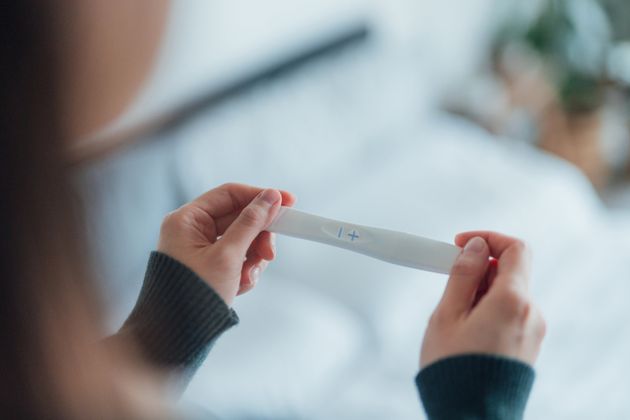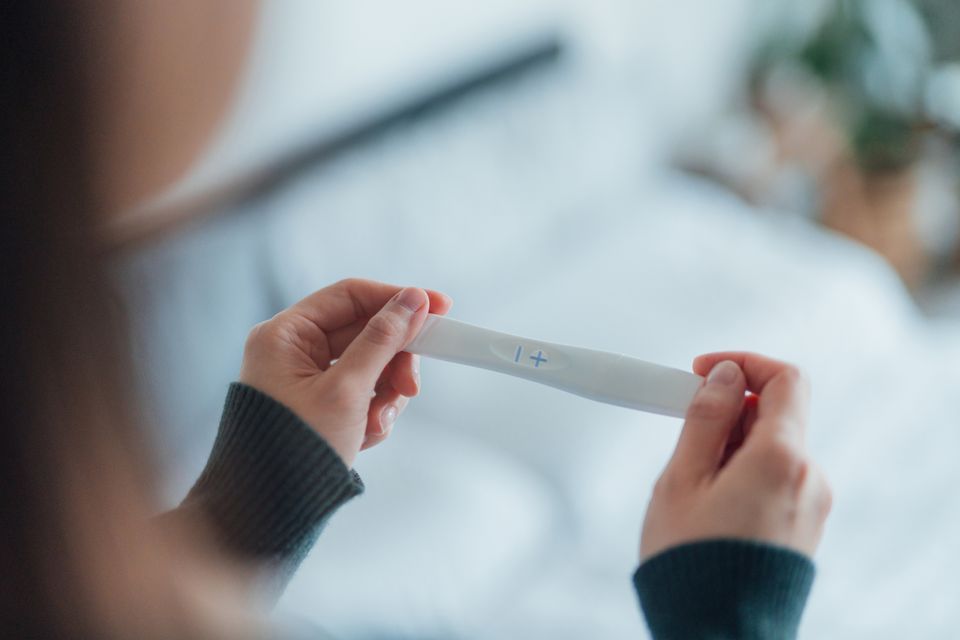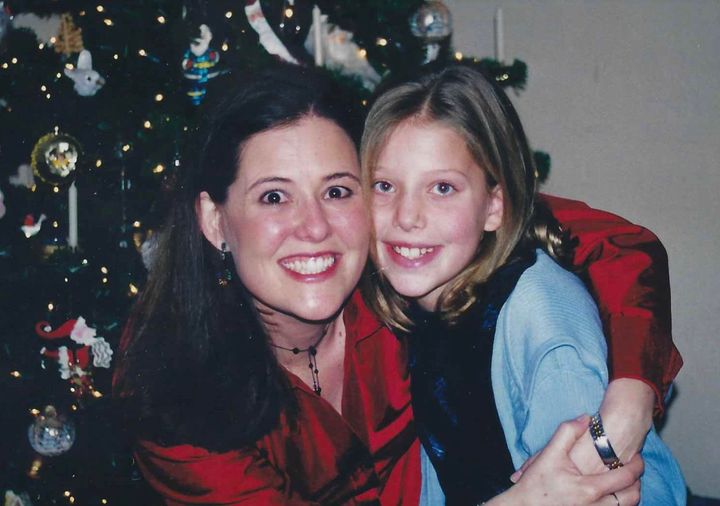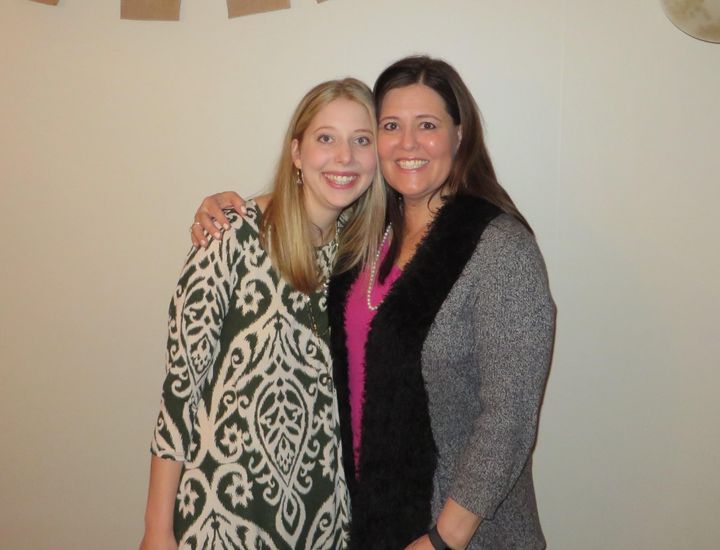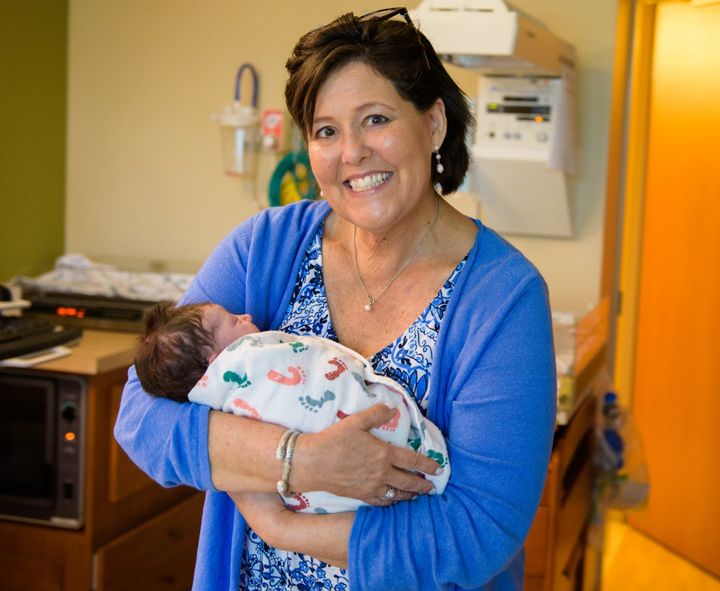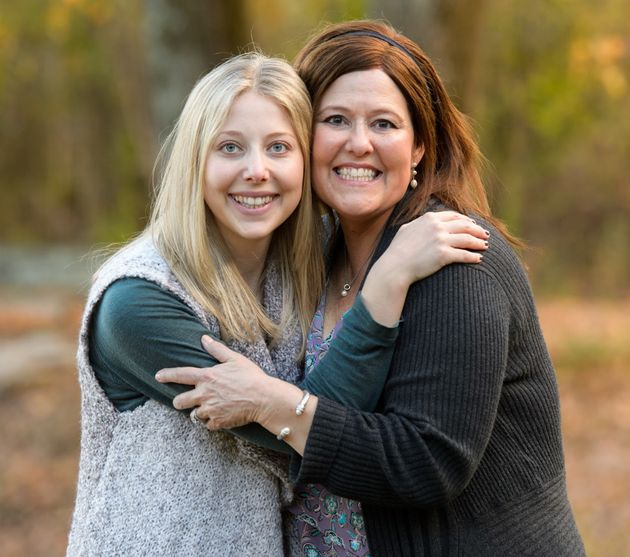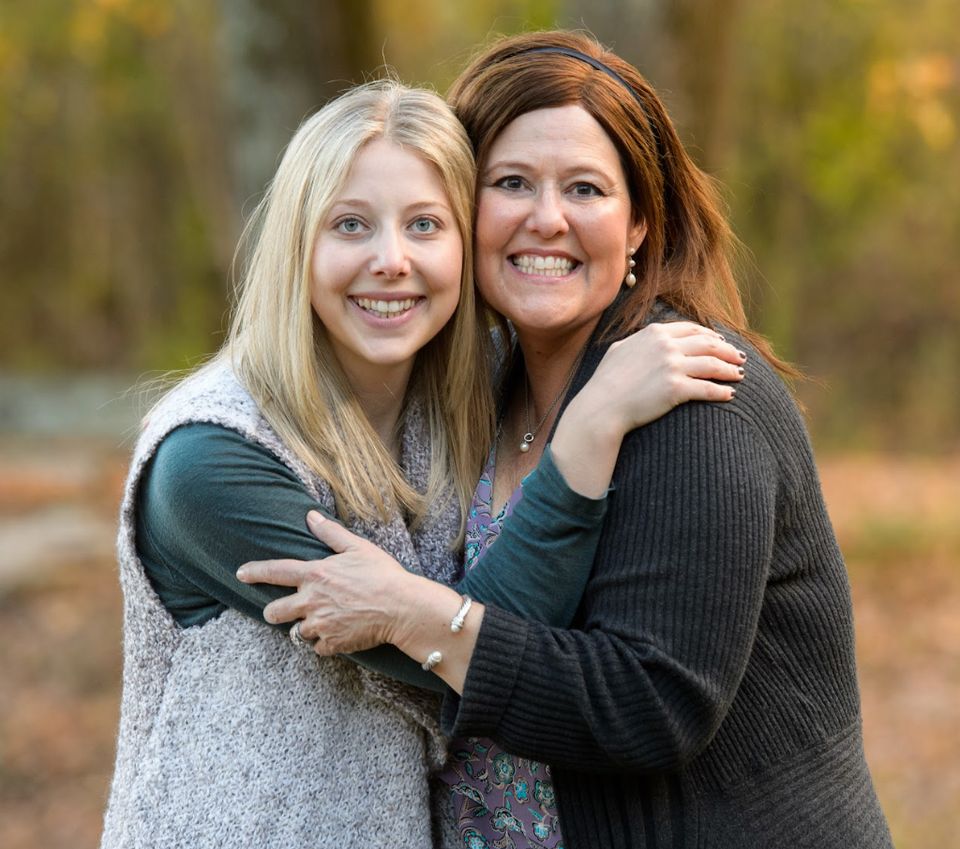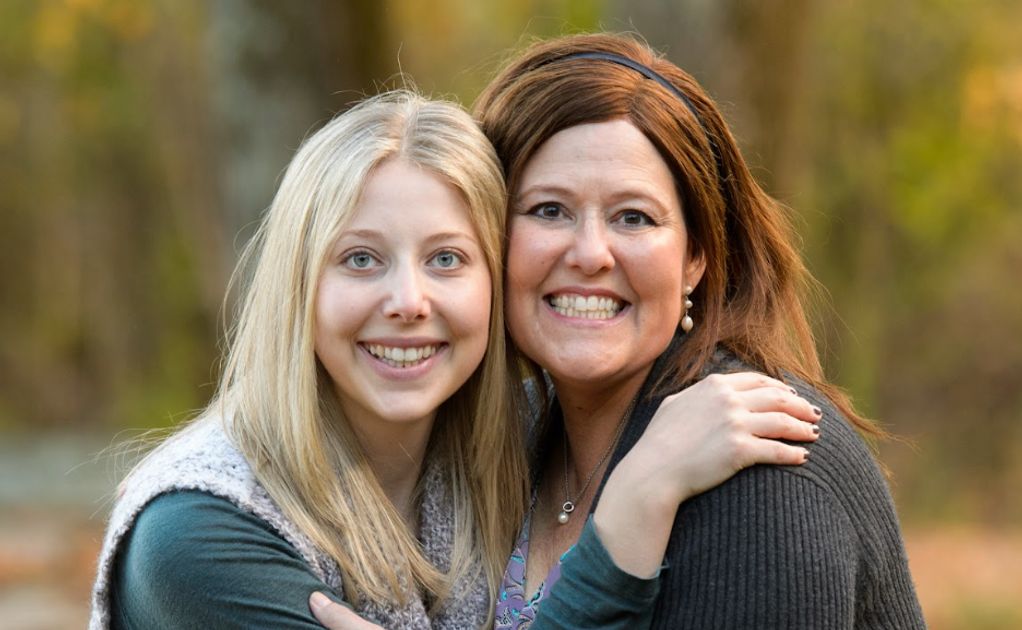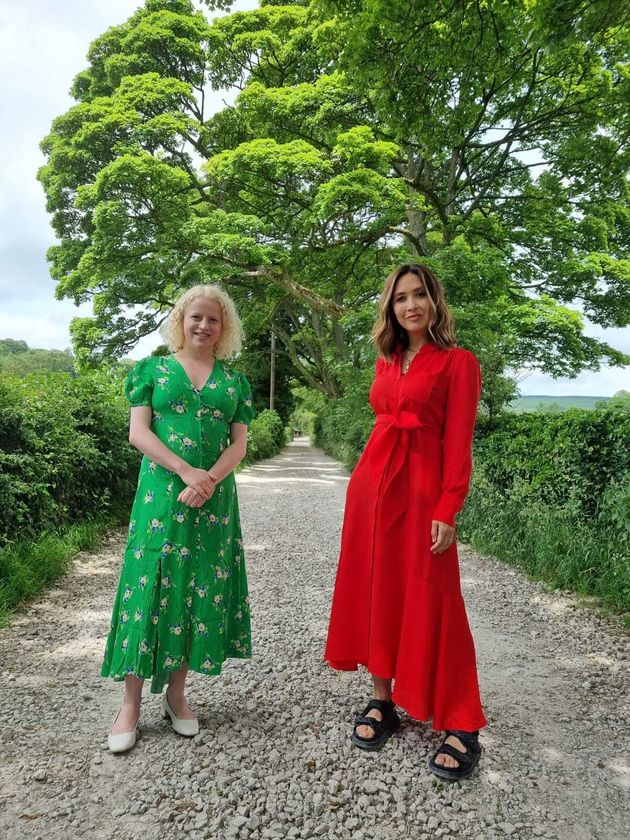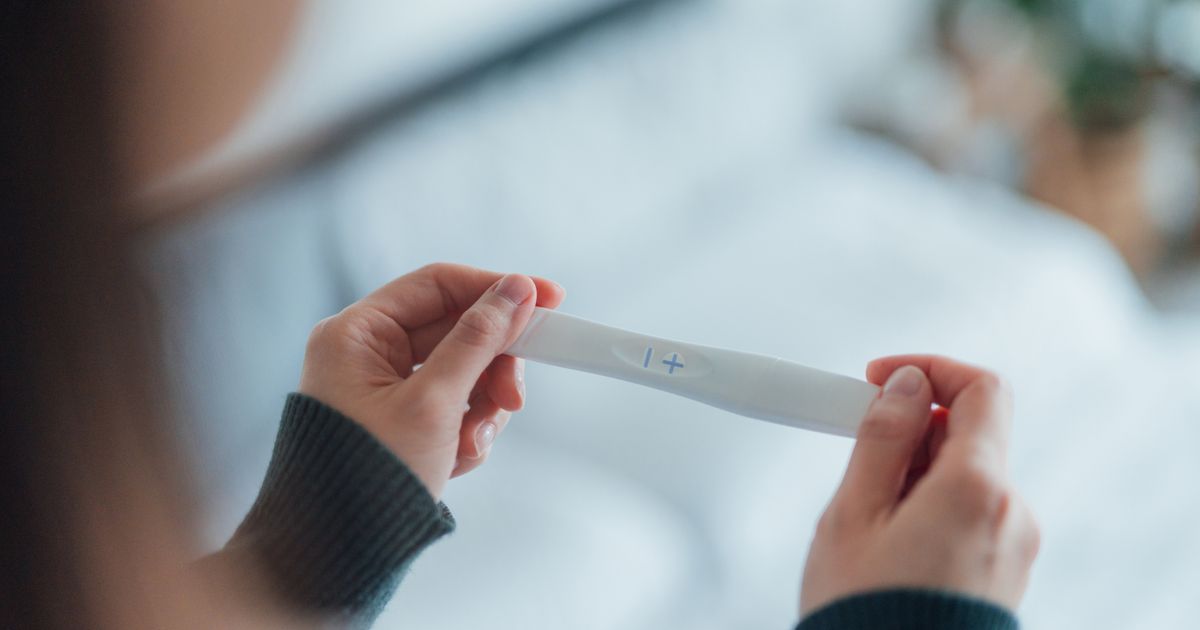
I stared at the pregnancy test with relief, sadness, fear, longing and regret. “Pregnant,” it said.
I tried to breathe. I guess I couldn’t have that glass of wine I had been planning after all. In fact, the reason I bought the test was that I wanted to drink. I hadn’t for the past several days because I started to become alarmed that my period was so late. Holy buckets. Pregnant! How did this happen?
Oh yeah, that one time I had unprotected sex. I didn’t bother taking the morning after pill because I figured I was too ancient for something to happen.
Advertisement
I honestly didn’t think I could get pregnant. I spent my 20s doing everything in my power to prevent such an occurrence, including taking the morning after pill numerous times.
Then in my 30s, I came around to the idea that I actually did want to have a kid and tried to conceive with my partner at the time. I went off birth control for years with no result. I looked into going to a fertility clinic, but the cost was prohibitive.
In my late 30s, my inability to get pregnant caused acute pain and an ongoing feeling of loss. When I turned 40, I was finally able to come to peace with what I assumed was my own infertility. When I turned 42, I figured that window had closed.
Then I found myself about to turn 43 and pregnant by someone I’d met on Hinge and with whom I had four dates.
Advertisement
I paced and paced, my mind spinning. This thing I wanted for so long finally came to fruition. A baby! I never considered getting an abortion, despite the less-than-ideal situation of being without a partner. Yes, I was scared of all the risks of having a kid as an older mom, but there was no way I’d let this chance pass me by.
I started to think of baby names right away, and before I even told anyone, plotted scenarios of how on earth I would make it work. I’d need to get a two-bedroom apartment, I thought. Maybe my parents could help with child care. Or I could ask my nieces and nephews to help babysit. I plotted and schemed how I’d make it work.
I didn’t tell anyone until the next day. The first person I called was my sister. “I think I’m going to keep it,” I found myself saying.
I told a few other close friends. Everyone was supportive, though some encouraged me not to make my decision right away about keeping it or not. I said I would think about it to appease them, but I had already made up my mind.
“I began to see how people in early pregnancy should instead lean into their community. If the worst happens, then the village is there to offer support. Why keep things secret and battle that loss alone?”
Advertisement
I found it very difficult not to tell people my happy news. I wanted to share it with the world, but I didn’t even tell my parents, nor did I tell the Hinge guy, who I hadn’t spoken to in two months. I knew I would tell them, but I felt I needed to wait.
I had heard you weren’t supposed to announce your pregnancy until you were 12 weeks along. I had people I was close to encourage me to wait until that long to share widely, but I didn’t understand why.
Abortion stigma and miscarriage stigma are two sides of the same coin. In both cases, instead of seeing reproductive health as simply that — a part of a person’s overall health care, it’s instead loaded with politics and morality. One sequence of events means you are a terrible person, another sequence of events means you somehow are lacking as a real woman.
One-quarter of pregnancies end in miscarriage. We are told to keep early pregnancies private in order to be spared the pain of sharing our loss. I began to see how people in early pregnancy should instead lean into their community. If the worst happens, then the village is there to offer support. Why keep things secret and battle that loss alone?
A week and a half after I found out I was pregnant, I was reading on the couch, and I felt a sudden gush of liquid. I went to the bathroom and realised I was spotting. I happened to have my first ultrasound appointment the next day, and I was prepared for the worst.
Advertisement
At first, when the technician began the ultrasound, I didn’t realise that my insides were being projected on the screen in front of me. I opened my legs apart so I could see the image. I gasped. I saw the most miraculous thing. It was my very own little nugget right there!
Finally, the technician took the wand out and told me she was very sorry but couldn’t detect a heartbeat. It was like she jabbed me with a knife. I started crying then, and she took me to a private room so I didn’t have to go to the waiting room.
I immediately regretted not telling my parents. I needed my mom more than ever. Why hadn’t I shared with her the truth from the beginning?
“Our culture has a long way to go to support people who get pregnant, and that starts with getting rid of the shame of miscarriage, the politicization of abortion, and the judgment of not having children at all.”
I felt shame too, about the people I had told. Now I would have to tell them about the miscarriage. But then I started to question myself. Wasn’t it a good thing to seek support when something terrible happens? Why should I feel ashamed?
Advertisement
It took three more weeks for the miscarriage to actually happen. I decided to wait for it to happen naturally, and I ended up needing to go to the emergency room. It was traumatic, and yet I still felt hesitant to share with people outside of my closest circle.
I didn’t truly feel comfortable saying it was a loss, but it was. That doesn’t negate other people’s experiences of becoming pregnant and deciding to abort. Those two truths can exist for different people. For me, I lost someone I wanted to meet and love. I had to say goodbye before they were even born.
Our culture has a long way to go to support people who get pregnant, and that starts with getting rid of the shame of miscarriage, the politicization of abortion, and the judgment of not having children at all.
That’s why you should share whenever you feel compelled to share. For me, keeping the news bottled inside me ended up preventing me from getting all the support I needed. Maybe other pregnant folks want to wait a bit longer.
The important thing is that as a society, we need to stop telling people they have to wait until some arbitrary predetermined date. Get rid of the stigma around miscarriage and start caring for people at all stages of their pregnancy journey, even pregnancies that don’t come to term.
Advertisement
Help and support:
- Sands works to support anyone affected by the death of a baby.
- Tommy’s fund research into miscarriage, stillbirth and premature birth, and provide pregnancy health information to parents.
- Saying Goodbye offers support for anyone who has suffered the loss of a baby during pregnancy, at birth or in infancy.

